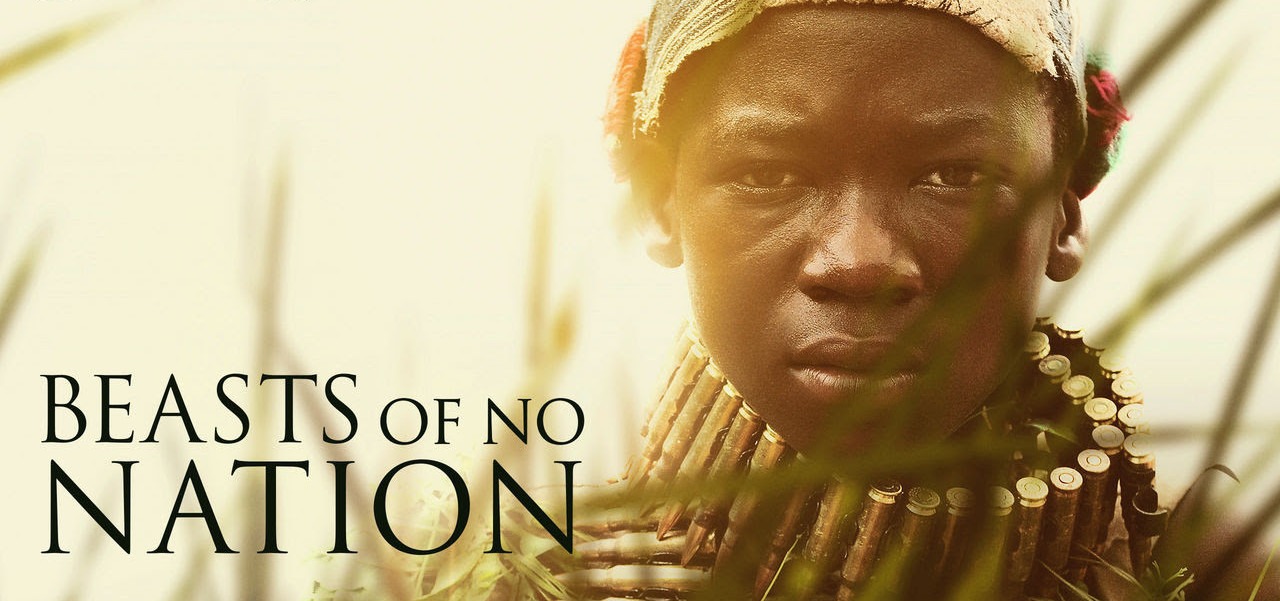Netflix’s original film, “Beasts of No Nation,” a new take on war dramas
4 min read
By DELLA HETHCOX
In an attempt to redefine the film industry, Netflix premiered “Beasts of No Nation,” an original film, in both theaters as well as direct streaming on Oct. 16. The film, directed by Cary Joji Fukunaga, opened in a reported 31 theaters across the U.S., in addition to being available to view instantly online. Although the film only earned $50,699 in theaters, Netflix representatives were pleased with film’s performance in person and online.
Starring A-list celebrity, Idris Elba, and newcomer, Abraham Attah, “Beasts” is based on a novel of the same name. Fukunaga, the director, is well known for his work such as the first season of “True Detective” and the 2011 gothic film adaptation of “Jane Eyre.”
Fukunaga wrote, produced and directed the film, which is already garnering praise and leading to Oscar speculation. Filmed in Ghana and scored by Dan Romer, each element of the cinematography creates a stunning film around the serious subject of children soldiers.
The melancholy electronic music neither detracts from nor glorifies the gory scenes, but manages to create a nightmarish- like quality that fits in with the haze of war.
Although the plot is predictable, the grim depiction of the recruitment and abuse of child soldiers in Africa is nevertheless heart wrenching and hard to stomach.
Attah plays Agu, a young boy living life in a small community. In the opening scene, Agu narrates, “I am a good boy, from a good family.” Viewers see life in an unnamed West African village as families eat dinner and children play games, chanting songs to pass the time because school is no longer in session due to the military turbulence. Agu is forced to join a rebel Army after watching his father and brother be executed by government soldiers, who mistakenly believe a local witch-woman who declares that the villagers are rebels.
Agu flees the bloody town square and takes refuge in the forest, where he tries to survive by eating plants, which only make him ill. Agu is quickly captured by rebel forces which consist of boys his age and younger, under the command of older rebel boys following the lead of the Commandant, convincingly portrayed by Elba.
“Little boys have hands to strangle, fingers to pull a trigger. A boy is very, very dangerous,” said the Commandant as he inspected his new recruits, all pre-pubescent boys abducted from war-torn villages.
The Commandant immediately becomes a father-figure for Agu and the other boys, yet under his emboldening presence lurks something darker. His ragtag army runs on bloodlust, drugs and the sexual abuse and predation of the child soldiers.
Agu is befriended by a mute boy named Strika, played by Emmanuel Nii Adom Quaye, who was also raped by the Commandant. The boys form a strange bond over their mutual abuse, finding comfort in each other’s uncomfortable silence.
Even though the child soldiers have been brutally stripped of their innocence, they try to reclaim it by playing tag or chasing chickens in between violent campaigns against government forces, where they set up roadblocks and launch missiles as civilian convoys. The boys’ childlike impulses are seen in their lack of training and the ways in which they quickly believe the nationalistic doctrine that the Commandant feeds them, along with their meager bowls of rice.
The Commandant runs the boys ragged from their first moment of bloody initiation (for Agu, that means splitting a man’s head in two with a machete) to raping and looting small villages, all under the guise that they are avenging their dead families.
However, the Commandant’s backstory is lacking, viewers receive none of his history as to explain why he is so incredibly power hungry and corrupt. Fukunaga developed the script for this film over a period of seven years, and leaving the Commandant’s character as so morally ambiguous denies the audience answers, in the same way that none of the child soldiers, or Agu, will receive any either.
Many of the children defect after the Commandant goes rogue and are sent to campus by soldiers working with the United Nations. The boys are so damaged after their experiences that they cannot function, or regain their childhood, in missionary campus along the African coast.
Agu suffers nightmares and cannot relay his experiences to counselors, because as he says, he has seen things, done things that they can never imagine. Many of the boys leave the camps for the old security they felt in the rebel camps.
Viewers are denied any chance of a happy ending, and yet, the final scenes end with the boys swimming in the ocean, a symbol of redemption and purification for them. This is their first moment of true freedom since their boyhood militarization.


